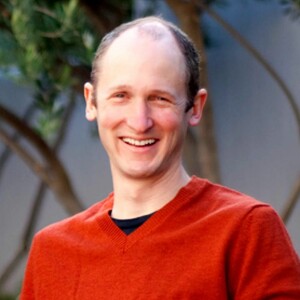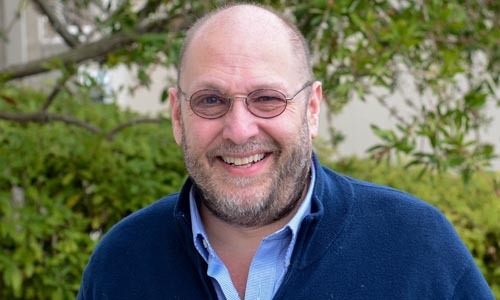Episodes

Thursday Oct 27, 2016
How TwoXAR Is Using Big Data to Accelerate Drug Discovery
Thursday Oct 27, 2016
Thursday Oct 27, 2016
It can take up to six years to accumulate enough evidence to support advancing an experimental drug into clinical development. twoXAR is working to rapidly accelerate that process through the use of Big Data and its proprietary algorithms to find screen large public and proprietary data sets to indentify new drug candidates and determine their efficacy. We spoke to Andrew Radin, co-founder and CEO of twoXAR, about the company’s technology, how it’s being applied today, and the evolution of the company’s strategy.

Thursday Oct 20, 2016
Developer of innovative catheter for cancer drugs turns to crowdfunding
Thursday Oct 20, 2016
Thursday Oct 20, 2016
Robert Goldman had been a successful Internet age inventor having developed some of the critical technology underlying the way digital music is stored, searched, and purchased online. But when his sister developed cancer, he found himself turning his skills as an inventor into an unchartered area for him. Eventually he developed a new type of catherter to deliver cancer medicines directly to where they are needed in the body. But despite his company’s success at winning marketing clearance from the U.S. Food and Drug Administration, his company Vascular Designs has had difficulty raising money. On October 17 Vascular Designs launched a campaign to raise $500,000 through the crowdfunding site Indigogo. We spoke to Goldman about his IsoFlow catheter, the funding environment for innovative medical device companies, and his decision to turn to crowdfunding.

Thursday Oct 13, 2016
Harnessing Real World Samples and Data to Speed Biomedical Research
Thursday Oct 13, 2016
Thursday Oct 13, 2016
One of the issues researchers face is getting access to needed biospecimens with detailed clinical data that can expand the understanding of a specific disease or treatment. The difficulty in obtaining biospecimens can hamper R&D productivity, extend the time of project, and increase costs. Novaseek has developed a platform that provides access to real world data and supports the ability to define patient cohorts based on detailed clinical criteria, such as demographics, diagnoses, medications, and lab test results, and supports the collection of biospecimens at various time points. The platform also offers healthcare organizations an opportunity to develop a new source of revenue. We spoke to Kate Torchilin, CEO of Novaseek, about the challenges researchers face in getting biospecimens, how Novaseek seeks to address that, and how the company’s platform can help to accelerate biomedical research.

Wednesday Oct 05, 2016
A Rich Pipeline Expected to Drive Industry’s Growth
Wednesday Oct 05, 2016
Wednesday Oct 05, 2016
Evaluate Pharma, in its latest World Preview report, is projecting solid growth for prescription drug sales through 2022. Driving that growth is both the new products expected to come to market during that time and the industry’s embrace of orphan drugs, the source of half of that growth. We spoke to Antonio Iervolino, head of forecasting for Evaluate, about the new report, the growing number of drug approvals, and the challenges drugmakers face that could alter the outlook for the industry.

Thursday Sep 29, 2016
Harnessing Biology to Transform the Economy
Thursday Sep 29, 2016
Thursday Sep 29, 2016
The growing promise to harness biology to address environmental, agricultural, health, and energy needs is fueling a new bioeconomy. The state of engineering biology will be on display at the SynBioBeta SF 2016 conference in South San Francisco October 4 through October 6. We spoke to John Cumbers, founder of SynBioBeta, about the state of the industry, the challenges it faces, and the long-term potential it holds for transforming our manufacturing sector.

Wednesday Sep 21, 2016
How a Predictive Diagnostic Can Reduce Preterm Births
Wednesday Sep 21, 2016
Wednesday Sep 21, 2016
About 380,000 infants in the United States—about one in 10— are born prematurely each year. Preterm births, defined as any birth before 37 weeks of pregnancy, is the leading cause of death for infants and puts these babies at greater risk for cerebral palsy, respiratory and cardiovascular complications, and delays in development. Sera Prognostics has developed a predictive diagnostic that can identify pregnant woman at risk of delivering prematurely, allowing for interventions. We spoke to Greg Critchfield, CEO of Sera Prognostics, about the test, how it works, and what it take to get doctors to adopt the test and payers to reimburse for it.

Thursday Sep 15, 2016
Building Better Drugs for Psychiatric Disorders by Targeting the Causes
Thursday Sep 15, 2016
Thursday Sep 15, 2016
The Johns Hopkins University School of Medicine and the Salk Institute for Biological Studies are leading a $15.4 million effort to develop new systems for quickly screening libraries of drugs for potential effectiveness against schizophrenia and bipolar disorder. The National Institute of Mental Health is funding the work. We spoke to Hongjun Song, professor of neurology and neurosciences at the Johns Hopkins University School of Medicine, about the effort, the challenges of understanding the underlying biological mechanism of these disorders, and how the consortium expects to change the development of drugs to treat mental illnesses.

Thursday Sep 08, 2016
The Role of PBMs in the Controversy over Drug Pricing
Thursday Sep 08, 2016
Thursday Sep 08, 2016
The recent controversy over Mylan Pharmaceuticals sharp increase to the price of its EpiPen, an emergency injection of epinephrine to treat someone suffering a severe and potentially fatal allergic reaction, has once again ignited public debates over drug pricing. While drugmakers have been in the sights of the public, other players in the supply chain have escaped scrutiny. David Balto, a Washington, D.C.-based antitrust attorney, in a recent piece in The Hill, calls attention to the role pharmacy benefits managers play in the price equation. We spoke to Balto about PBMs, their growing power, and the perverse incentives they have to work against the best interest of consumers.

Daniel Levine
Daniel Levine is an award-winning business journalist who has reported on the life sciences, economic development, and business policy issues throughout his career. He is founder and principal of Levine Media Group, host of The Bio Report and RARECast podcasts, a senior fellow at the Center for Medicine in the Public Interest, and author of Global Genes’ annual NEXT report on emerging trends in the world of rare disease. From 2011 to 2014, he served as the lead editor and writer of Burrill & Company’s acclaimed annual book on the biotech industry. His work has appeared in numerous national publications including The New York Times, The Industry Standard, and TheStreet.com.

